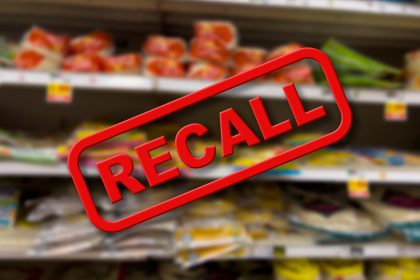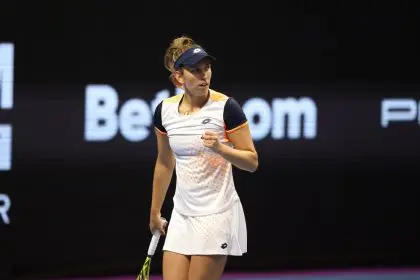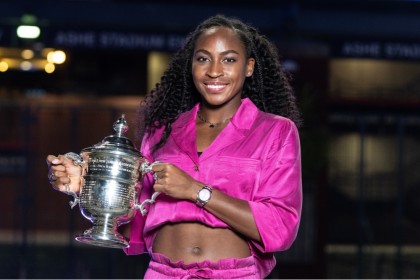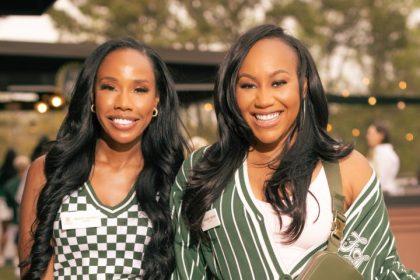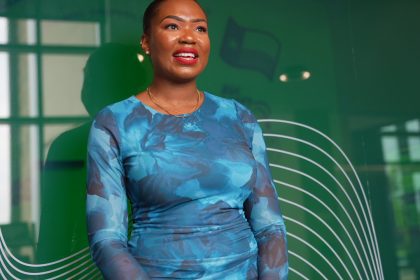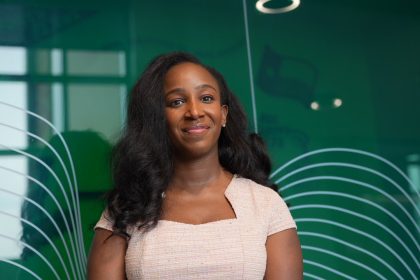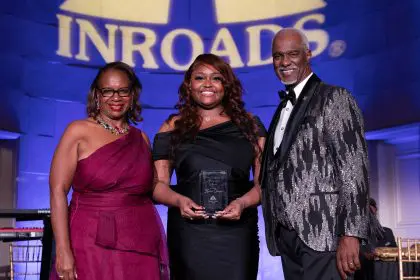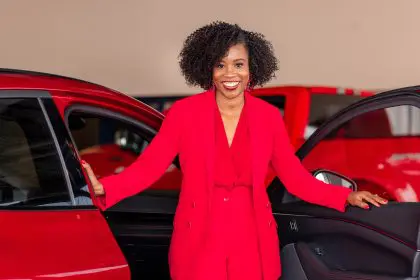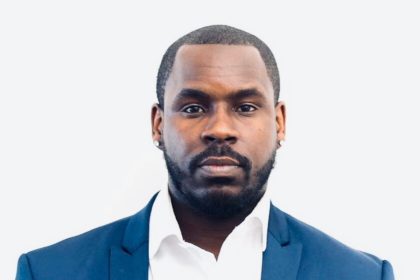
In 2012, Jacqie McWilliams anticipated her new position as the first appointed female commissioner of the Central Intercollegiate Athletic Association. Williams works closely with the board of directors and staff and provides leadership in strategic planning, day-to-day management and financial stability for the CIAA in an effort to produce a culture that supports the advancement of student-athletes and its twelve member institutions. Before her time at the NCAA, she was a member of the 1988 NCAA Division II Women’s Basketball Championship team and 1987 and 1990 CIAA volleyball championship team at Hampton University. Williams has held positions as a coach, senior woman administrator and compliance coordinator at Virginia Union University, and the director of Compliance and Championships at the CIAA.
Williams was promoted from an assistant director to an associate in her first two years at NCAA and then became the director of the Division I Women’s Basketball Tournament in 2006. In her years of experience, she had oversight of external operations of the tournament including lodging, collaboration with corporate partners and champions, community initiatives, and the Minority and Women’s Enterprise Access Program. –starling thomas
What is your day-to-day life like?
Oh my goodness! My day-to-day life is … it’s different every day I can tell you that. I think trying to keep up and manage every piece of the operations internally and then externally. So, when I say that you know we have three buckets, we have championships, we have 16 championships so my hands are not in it day to day but I definitely am abreast of what’s going on with all the planning. Our governance structure and compliance, that’s another area that a lot of people don’t understand but that deals with our bylaws, our conference rules in dealing with our schools on interpretations of violations and you name it, and education and then the business piece. Making sure I understand where we are day to day in our books, in payments, in outstanding or what our balance is and payroll, but fortunately I have a great team. I’ve hired a great staff that’s able to help me balance all of that, so their job is to get it done and my job is to give them the vision and the opportunity to do the work they love to do as well. It’s never the same every day. I am on a ton of NCAA committees and boards outside of the organization that really has kept me quite busy. My day to day now is saying no to getting involved in more than I’m already doing. I enjoy what I do, I’m extremely blessed.
The different NCAA boards that you are a part of, do people look like you?
Interestingly, no. I’m on a couple of boards, I’m on a committee called National Association of Collegiate Women Athletics Administrators. That’s a national board, that’s not NCAA, and that’s really an organization that empowers women who are in athletic leadership. It used to be an advocacy group but they have transitioned themselves in to a more leadership advocacy group to empower and to help women move into their position of executive roles. Whether they want to be an athletic director or senior women administrators, commissioners, you name it. I have been on that board for the last two and a half years and there are two of us women of color on that board and there’s two Asian women on the board as well. It’s a nice diverse group but mostly there are probably three or four of us out of a group of 15 or 20 NCAA Group, but they try to get diversity from women to men to position but then again there are not a lot of us in these positions and so there is not a lot of us that have access to the opportunity.
What inspires you to show up at work every day?
You know, I like to serve. I feel like I’m in a position of a servant leadership role where I report to 12 board member presidents and chancellors and when I know I can come in every day to evolve and grow the CIAA the way we are; it’s exciting. I had the opportunity to service over 3,500 student athletes through our championships and really create experiences for them, particularly those who might not ever get to a NCAA championship and because of my experience of one, winning a national championship and also working in the NCAA, it’s kind of nice to be able to implement and execute opportunities in our office for student-athletes and leadership programing for our coaches and for our board directors, we do training with them as well. It’s really being able to give back to all the things that I have gained over my 24 years of experience so that’s what inspires me. In spite of my daughter, I want her to see me, a woman, in position of power and leadership and humble in that role and that way she understands that she can be whatever she wants to be and that’s encouraging as well.
How did you determine your career path?
I think God determined my career path, honestly. I thought that I was going to be a child psychologist or my hope was to work in a professional organization, whether the NBA or NFL and when the door was open for to work in college sports I didn’t say no. From there, I think I learned and figured out what my passion was. I coached, I’ve been an administrator and done event planning and management. I always tell my staff, “If I can’t run a championship, I know I can at least do a birthday party!” I have definitely taken the opportunity to have my skill sets molded to learn a bunch of different things in administration and in athletics. When I went to the NCAA and saw that I loved working at events, I loved serving a membership association but if I had the opportunity to come back to the CIAA, which is home for me that I would love the opportunity to be the commissioner. I called it out and I prayed on it and by God’s grace here I am. I don’t take it for granted because I definitely believe that when you speak about your dreams and what you want, they could really happen if you stayed focused on what you’re doing and do the best that you can where you are currently. I think great things happen for great people as long as you are committed and honest and have the integrity and all those things that come with it. I feel honored honestly, to be able to do what I love every day and feel good about it.
When you sit back and look at it all, how do you evaluate whether or not you are being successful in having an impact?
Wow. That’s a great question. One of my board members Dr. Yancy, before she left she was on the personnel committee and I remember her saying to me, “Always have a brag seat for yourself.” and that has really helped me. I don’t think have always captured my successes throughout the years and even as an athlete I never looked at stats, I didn’t care about all that. I just wanted to be a good athlete and a good team captain. Even though I was the captain and player of the year and all those other things, as great as the award was I wanted to be able to know that I gave all that I could but I never tracked on it. I think I’ve done a lot better job over the years since I have been commissioner, tracking on success and if we look at annually our goals and objectives and probably when I was at the NCAA I had great leadership that wanted us to track our success. When you right it down every year and put down what your goals and objectives are for that year and you start writing it down, you get to that end of the year and you can actually see what you’ve done then you can measure success. As we go along annually with CIAA, I have a success folder on my computer but also a folder in our office and every time we do something that’s really great I put it in that folder. Every time we may not have succeeded in something I put it there understanding that we are going to come back to it, so that’s kind of how I track it. I have asked our staff to do a better job of looking at everything we do, get evaluations back from student-athletes and talk to the people we feel that we are impacting to see what they say and that’s how we’re going to get better.
Are there any books that you have read that changed your perspective that you would recommend to others?
You know I use to have this goal that I would read three books a month one that was personal, it could be a love story or a story about anything. A professional book, something would inspire me and of course my bible. I would tell you that the one thing that keeps me going is my bible reading, that has helped me tremendously to stay focused on God’s plan for my life. I love books from Joyce Meyers, her books have helped me through some moments of I don’t know if I want to do this you know. Or moments of I don’t know if I can do this. I read a lot of her books when I am feeling like I’m a little behind myself and not feeling encouraged about where I’m going. The one book that I’ve read recently last year, it took me awhile but I was glad I got through it was a book called “The One Thing.” It was recommended by a dear friend and I think it’s a good book for somebody who’s in leadership because it helps you get focused on the most important priorities and organization or even in your life that you should be focused on so if reducing the deficit is most important then how do you focus on that and not get distracted by the noise around you so that you can get out of that deficit. That book has been very helpful and then lately I have been all over Brenae Brown. I am reading a book of hers called “Rising Strong” but one book that really helped me in this past year was a book called the “Power of Vulnerability,” which has been great in showing relationships and being confident about who you are. So as you can tell I read a lot of stuff to help me. There’s an author called Carla Harris, she has a book called “Strategize to Win.” She’s an African American woman and she actually spoke at our conference two years ago and she is phenomenal. She talks about the pearls that she wears just to remind her who she is and the strength that she has and the power that she has. There is a strategy to win and she gives you all these outlines. Those have been probably in the last year or two that I have really focused on and have been real helpful to me.
Why is lifelong learning important?
Lifelong learning is important because that is the only way that you grow. I think I’ve learned over the course of being in this position is that we can be negative an take challenges in a way that feels detrimental or mind boggling or hurtful but I don’t think if I hadn’t gone through all the things that I have gone through being the leader and helping transform this conference and going through some of my own personal challenges, whether it’s divorce or moving or raising my daughter as a single mother I don’t think I would be the mature woman that I feel like I am and the Christian woman that I am and have the confidence that I can do all things through Christ who strengthens me because despite what the challenges are I have to see it all as opportunities of growth. Learning every day is extremely important. I’m learning from you today and you’re learning from me and if you don’t take advantage of this opportunity then how have you grown in the moment that we just spent for 15 minutes? You have to see anything that you do from going to the grocery store to how you deal with people in the service line or when somebody calls you, what did you learn from that opportunity? I don’t take any of that for granted, I think the older I get the more seasoned I get in my leadership role, the more I understand the value of learning and feeling in reaching back and making sure that others are learning in my presence.

